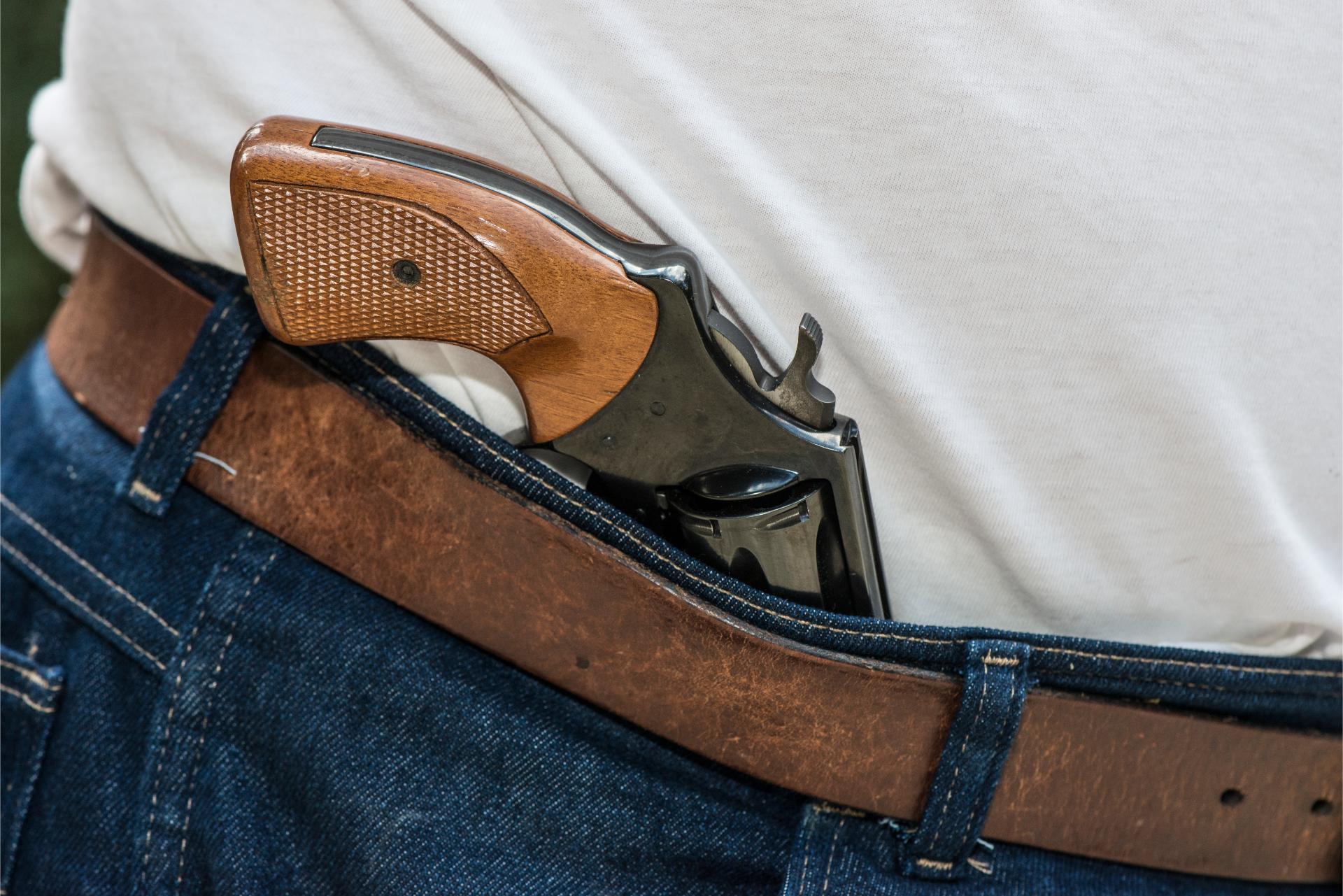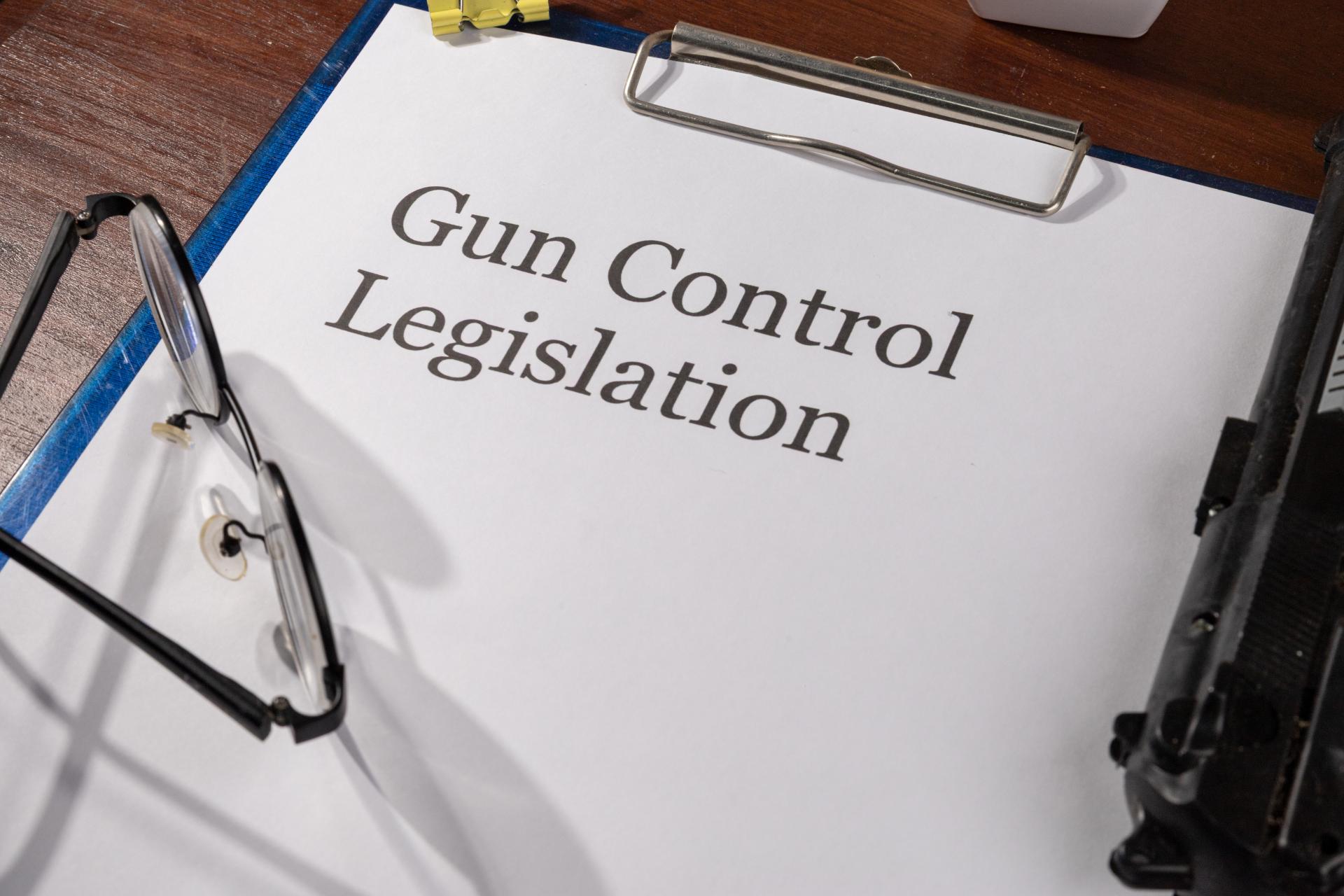You hear about them on the news, maybe a friend whispers the term in a group chat, and suddenly the words Ghost Gun pop up in your head.
You wonder, “Is it really a big deal?” Short answer? Yes.
What Is a Ghost Gun?
A ghost gun is a firearm that skips the normal factory trail. It starts life as unfinished frames and receivers, parts that can be purchased online or at a swap meet without a criminal background check.
Using basic tools like a drill press, hand tools, or even a 3D printer, individuals can complete these parts at home. Because these firearms typically lack serial numbers, they are difficult for law enforcement to trace, placing them in what’s often referred to as the “gray market.”
Unlike a store-bought pistol, a ghost build doesn’t move through the federal regulation pipeline. The parts ship straight to your door. You handle the rest.
That secrecy boosts its appeal to hobbyists who crave DIY projects—but it also raises red flags for law enforcement agencies worried about undetectable firearms showing up at crime scenes.
A quick timeline helps:
- 1968: Congress passes the Gun Control Act, also known as the Control Act of 1968. This law creates the foundation for modern gun laws, requiring serial numbers on firearms and regulating their sale, ownership, and tracking.
- Today: With cheaper tech and access to 3D printing files or router kits, almost anyone can build a working ghost gun at home—often in just a weekend—without going through a criminal background check or official paperwork.
So, the core test is simple: if it sidesteps a serial stamp and official paperwork, you’re likely looking at a ghost build.

Are Ghost Guns Legal?
Rules depend on state law and evolving federal law. Some states treat ghost builds like any other gun: if you’re a lawful owner, no permission is needed. Others close the door entirely, requiring engraving or banning self-made firearms outright.
Federal agencies rely on the Bureau of Alcohol, Tobacco, Firearms and Explosives—often shortened to firearms and explosives ATF—to define what counts as a regulated weapon.
In 2024, a fresh federal regulation expanded the definition of “firearm” to include unfinished frames. That shift pulled many build kits back under gun regulated status.
Every year brings a new court battle. One headline case, known as the Supreme Court ghost gun ruling (decided in 2023 and revisited in 2025), allowed enforcement of the ATF rule while lower courts fight about its reach. The decision didn’t outlaw all homemade guns, but it showed the justices take the threat seriously.
Why Ghost Guns Are a Legal Concern
- No traceability: Ghost guns don’t have serial numbers, so police can’t link them to a buyer or seller. This makes it harder to solve crimes or track how a weapon ended up at a scene.
- Easier transfers: Since there’s no required criminal background check, anyone—including someone banned from owning a gun—can buy or trade a kit privately with no paper trail.
- Patchwork rules: One county may allow builds, the next may not. Travelers get caught off guard crossing borders.
- Public safety fears: Stories of ghost builds in school shootings push lawmakers toward stricter gun laws.
- Regulatory whiplash: Each new court or agency action flips requirements, leaving honest hobbyists guessing what the law requires
What Happens If You’re Caught With a Ghost Gun?
Picture getting pulled over for a broken taillight. An officer sees a firearm on your passenger seat. If that pistol has no serial number—and you’re in a jurisdiction that bans them—you face multiple charges in seconds.
Common counts include:
- Possession of an unregistered firearm under the Gun Control Act (federal): Ghost guns without serial numbers may be treated as unregistered firearms, a serious federal offense that can lead to felony charges and up to 10 years in prison.
- Possession of a prohibited weapon under local statutes: If your state law bans ghost guns or requires serialization, just having one—even at home—can result in criminal charges, especially if it was made after the ban.
- Transportation of an untraceable weapon across state lines: Moving a ghost gun into a state where it’s illegal or lacks proper markings can trigger federal law violations and possibly lead to trafficking charges.
Penalties vary. A first violation can bring hefty fines, felony records, and even prison. Repeat offenders risk stiffer sentences.
A related supreme court ghost gun case from 2024 upheld a five-year federal sentence for trafficking unnumbered pistols across three states. Courts use that benchmark often.
Beyond prison, you’ll face:
- Property seizure: Officers can take the gun plus the tools used to build it.
- Long-term loss of rights: A felony blocks future firearm ownership under federal law.
- Career fallout: Security-sensitive jobs may vanish overnight.
How to Defend Against Ghost Gun Charges
When charges drop, time matters. You need a battle plan and a seasoned criminal defense lawyer who knows self-made firearm cases inside out. Solid defenses include:
- Challenging intent: Prosecutors must show you knowingly built or owned an untraceable weapon. If a friend left the gun in your glove box without telling you, that muddies the intent.
- Questioning classification: Was the part legally a firearm? Prior to the latest rule, many 80-percent frames were considered raw metal, not guns. Your lawyer can attack unclear definitions.
- Fourth Amendment fights: If police lacked probable cause, the court can toss evidence. No gun equals no case.
- Grandfather clauses: Some states allow earlier builds if you mark them within a grace period. Proof of timely engraving helps.
- Selective enforcement: Targeted policing—like seizing ghost builds only from one demographic—can violate equal-protection rights.
Each argument needs records, photos, purchase receipts, and expert testimony on firearms frames. Act fast, gather paperwork, and hand everything to counsel.
To learn more, watch the video where our attorney Shaheen Manshoory explains how to deal with ghost gun charges.
Preventive Tips: How to Stay Within the Law
You don’t want that jailhouse orange. Follow these steps to lower risk:
- Check local rules first. Laws shift quickly. Call your sheriff’s office or read your state’s firearms code before ordering kits.
- Engrave early. If allowed, mark your build with unique serial numbers within the window set by lawmakers.
- Keep receipts. Document every part purchase, including lower receivers, jigs, and tools.
- Store safely. Lock completed weapons in a safe. That keeps curious teens and burglars away, reducing chances of misuse.
- Know travel limits. Crossing into a state that bans ghost builds can turn an ordinary road trip into a felony stop.
- Stay updated. Track federal regulation changes and agency notices. Rules from the bureau of alcohol tobacco can change with little warning.
- Avoid gray-market forums. Buying unfinished kits through anonymous channels heightens scrutiny. Choose licensed sellers when possible.
- Consider traditional purchases. A standard shop sale requires a criminal background check, but it also protects you from surprise legal headaches.
Key Takeaway Checklist
| Action | Why It Matters |
| Verify gun laws before you buy | Avoid instant illegality |
| Mark the frame | Meets many state engraving mandates |
| Keep build photos | Proves your timeline if new bans appear |
| Consult a pro | A quick phone call can save you thousands |
Ghost builds sound cool on a YouTube tutorial, but they pack real-world legal heat. Stick to clear rules, mark your parts, and talk to a lawyer if you get a knock on the door. That one step can separate a hobby from a nightmare. Stay informed, build smart, and keep your record clean.
References
- Wikipedia contributors. (2025, March). Homemade firearm. In Wikipedia, The Free Encyclopedia.
- WBZ NewsRadio. (2025, March 26). Supreme Court upholds regulations on ghost gun kits.
- (2025, March 26). Supreme Court upholds federal ban on ‘ghost guns’.
- Roush, T. (2025, March 26). Supreme Court Upholds Biden Ban On ‘Ghost Guns’. Forbes.
- Lustberg Law Offices. (n.d.). What happens if you get caught with a ghost gun?
- Buffalo Rifles. (n.d.). What happens if you get caught with a ghost gun?
- (n.d.). Ghost guns: 5 things to know for law enforcement.
- California Attorney General. (2025, March). Ghost guns are firearms and need to be regulated.



